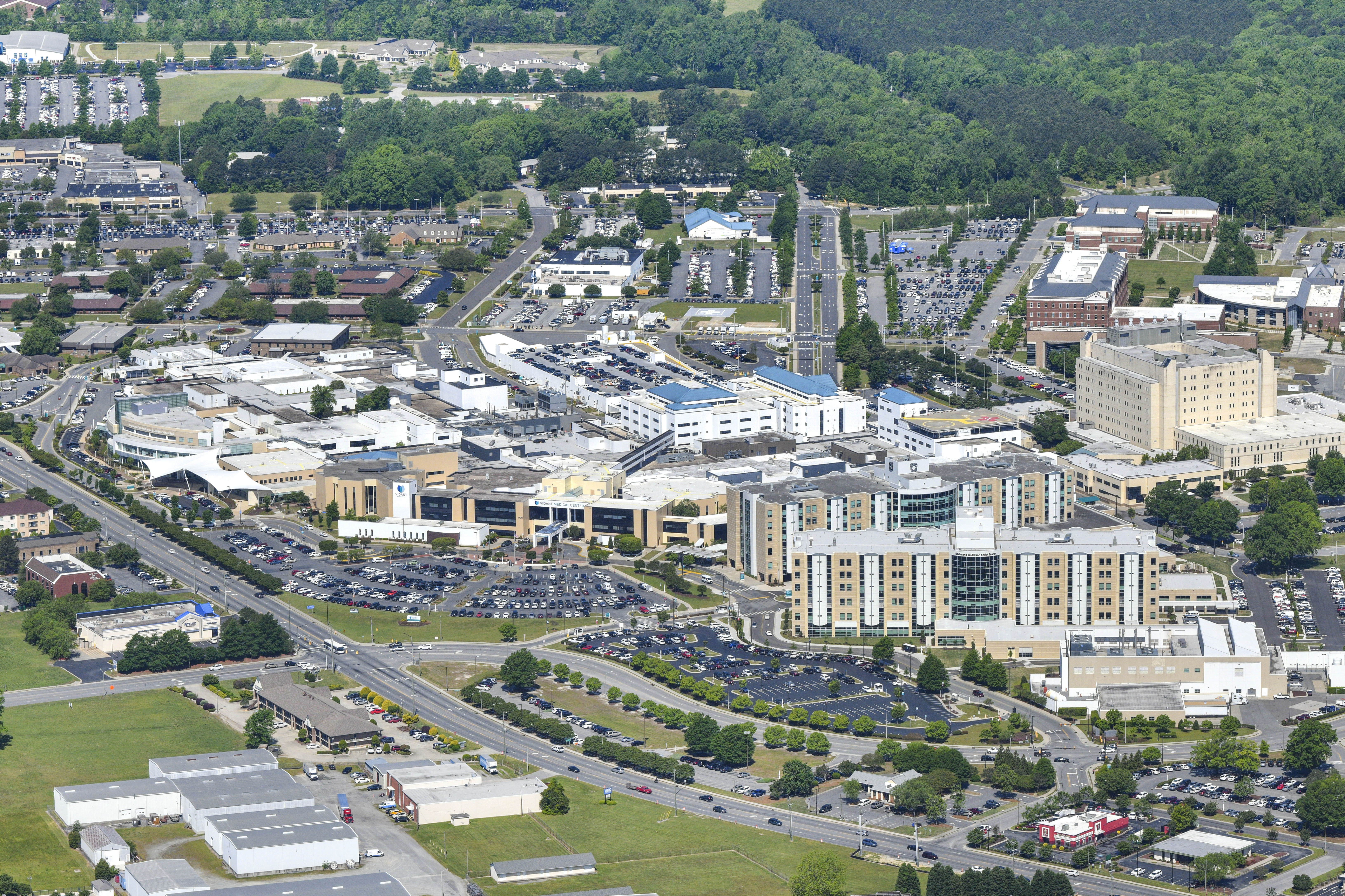
About Greenville-Pitt County
Greenville-Pitt County is centrally situated to serve the largest concentration of population and industry in eastern North Carolina (more than 815,000 people within 45 miles). Greenville (35 square miles) and Pitt County (656.52 square miles) are located in the north central coastal plains region of eastern North Carolina, 85 miles east of Raleigh, 87 miles west of the Atlantic Ocean, and 265 miles south of Washington DC. Pitt County, also known as the Greenville, NC MSA, is one of the fastest growing urban centers in North Carolina. It is also a leading retail center in eastern North Carolina and ranks as one of only a dozen billion dollar retail markets in the state. The local economy is well diversified with industries in advanced manufacturing, pharmaceuticals, life science, and food processing.
With a population of 93,137, Greenville is the 10th largest city in North Carolina. Strategically located off the east coast, Greenville offers convenient access to rail, air, ports and roads and is widely recognized as the cultural, educational, economic, and medical hub of eastern North Carolina. The community manages its own utilities through Greenville Utilities Commission (GUC), which provides quality water, sewer, gas and power to residents and businesses and alike. The City of Greenville is ranked in the top ten of the nation's "Best Small Places For Business and Careers" by Forbes Magazine.
Pitt County, with a total population of 180,692, covers 651.58 square miles of prime agricultural land in eastern North Carolina. The county approximately 90 miles from the nearest beach, Atlantic Beach, NC, and approximately 78 miles from our state capital, Raleigh, NC. The county's highest point 126.4 feet above sea level, in the Northwest portion of the county. Pitt County got its name from William Pitt, Earl of Chatham. William Pitt was an English statesman and orator, born in London, England, UK. Pitt County was founded in 1760 under British Colonial government.
With nearly 300 years of history and culture, visitors can find museums, historic sites, unique architecture, and artifacts that tell the story of Greenville-Pitt County from before the American Revolution up to the present day.
Our excellent affordability, geographic location, and natural resources, combined with out cultural, economic, educational, and medical amenities make Greenville-Pitt County a preferred destination for business and leisure travelers, and a wonderful place to live, work and play!
For additional information, click on the links below:
Cost of Living
The cost of living in the Greenville-Pitt County area is well below the North Carolina average and the national index. As per the Cost of Living Index for 2019, the cost of living for Greenville is 87.6% (or 12.4% below) the national average.
Real Estate
From rural areas to urban settings, there are plenty of housing options in Pitt County. The median sold home price is $177,000. The Greenville area features a progressive and dynamic real estate market with a diverse portfolio of homes including apartment-style living, townhomes, condos, and single-family homes.
Education
East Carolina University

Greenville is the home of East Carolina University, the fourth largest university in North Carolina. ECU offers 87 bachelor's, 68 master's and 18 doctoral degrees to nearly 29,000 students on its campus and through an acclaimed online learning program. ECU also boasts standout programs in business, education, nursing and the arts, and takes pride in impacting the health and prosperity of North Carolina's rural communities.
Located near Atlantic coast harbors where pirate once roamed, ECU adopted the Pirates mascot in 1934 for its athletics program and completes in NCAA Division I (American Athletic Conference). The university has a globally recognized academic underwater archaeology program and enjoys a supportive relationship with the U.S. military services.
Pitt Community College

Another asset to the Greenville education community is Pitt Community College. With a main campus in Winterville and a satellite campus in Greenville, PCC offers technical skill training, a two-year college transfer degree, a two-year technical degree, a one-year vocation program, a short-term certificate program, and a continuing education program. PCC has a total enrollment of more than 23,000 students.
With a culture of excellence and innovation, PCC is a virtual partner in the economic and workforce development of our community. PCC provides access to dynamic learning opportunities designed to foster personal enrichment, successful career preparation, and higher education transfer.
Pitt County Schools

Pitt County Schools is a dynamic, thriving public school system producing tangible, real-world success for its students. Pitt County Schools relies on professional collaboration and training to create healthy environments for all students to grow and to become successful.
Pitt County Schools currently serves more than 24,000 students in 38 schools and is continuing to see annual student growth. The district currently has a total of 3,280 employees, not including substitute positions.
In the 2020-20 school year, there were 2,550 National Origin Minority Students enrolled in Pitt County Schools, representing 43 different native languages. Of these students, 1,098 were identified as Limited English Proficient and were served in the ESL (English as a Second Language) Program.
Number of Schools
- Pre-K Education Center - 1
- Elementary Schools (K-5) - 16
- K-8 Schools - 6
- Middle Schools (6-8) - 7
- High Schools (9-12) - 6
- Early College High School (9-12) - 2
(note: PCS has applied to open a PC Virtual Academy school for the 22-23 school year)
Health Care
ECU Health Medical Center/ECU Health

Located in Greenville, ECU Health Medical Center is the heart of ECU's Health System with specialized services across two campuses. ECU Health Medical Center serves as the teaching hospital for the Brody School of Medicine at East Carolina University and is a tertiary care referral center.
ECU Health is one of the largest health systems in North Carolina. ECU Health's system of care includes 1,708 beds across an academic medical center with campuses, affiliated with The Brody School of Medicine at East Carolina University; seven community hospitals; and numerous outpatient facilities, home health, hospice and wellness centers. The system also includes a multi-specialty physicians and provider group, offers access to more than 500 providers in 100+ practice locations.
